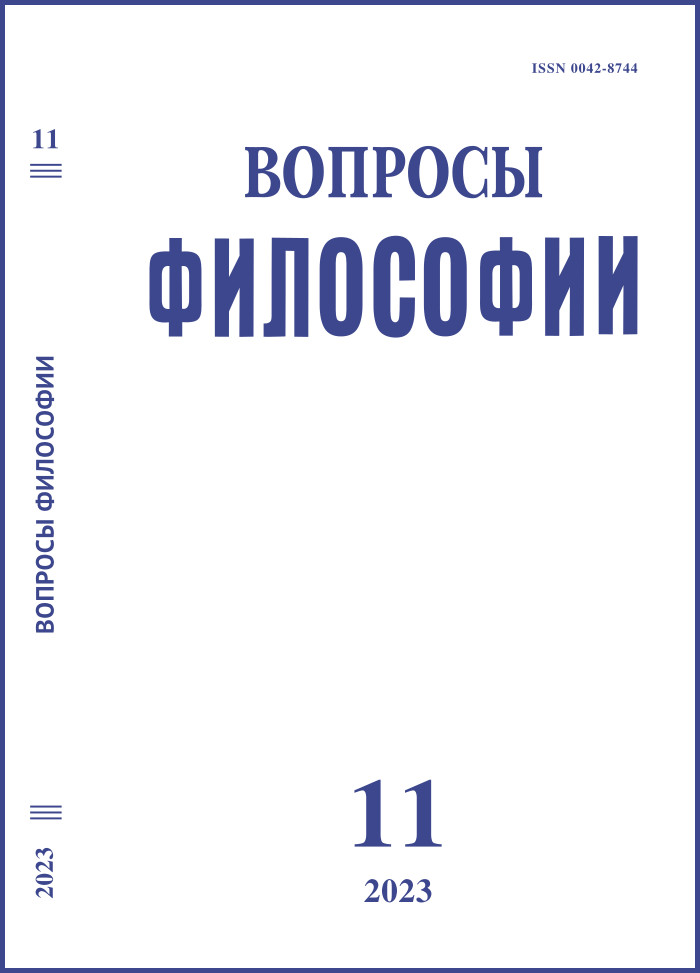Prishvin’s Lesson
DOI:
https://doi.org/10.21146/0042-8744-2023-11-5-9Keywords:
Prishvin, spiritualism, spirit of abstraction, intuitionism, existential, Gabriel Marcel, Bergson, personality vs generalization, artistic knowledgeAbstract
In the article, the author sums up his research on Prishvin. The focus is on the problem of the specifics of artistically oriented cognition, a unique example of which was realized in the work of the Russian writer-thinker Mikhail Mikhailovich Prishvin (1873–1954). It is shown that behind his external, seemingly purely literary activity, there is a deep intellectual work of a thinker who positioned himself as a representative of the philosophy of spiritualism and intuitionism. The author of the article compares the Prishvinian artistic method of cognition with the philosophy of the Christian existentialist Gabriel Marcel. The common denominator between these figures, who are at first glance distant from each other figures, is their inherent rejection of the “spirit of abstraction”, the negative role of which in culture both of them demonstrate in their own way.For Prishvin as a personalist differences are important in the world, and not the similarities and identities of things accessible to mathematical representation. The lesson of Prishvin, as understood by the author of the article, is to reveal the significance of artistic and existential personalistic knowledge not only in the narrowly artistic practice of art and literature, but also in philosophy and even in science. After all, “the origins of science and art”, as Prishvin believed, “are personal”. The author suggests that in order to cognize such synthetic cultural phenomena as Prishvin, a spiritual resonance of the cognizer with his cognizable is needed.

